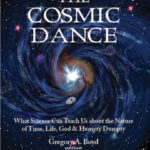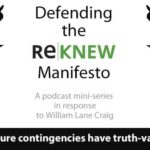We run our website the way we wished the whole internet worked: we provide high quality original content with no ads. We are funded solely by your direct support. Please consider supporting this project.
What is the significance of 2 Chronicles 7:12–14?
The Lord says to Solomon, “When I shut up the heavens so that there is no rain, or command the locust to devour the land, or send pestilence among my people, if my people who are called by my name humble themselves, pray, seek my face, and turn from their wicked ways, then I will hear from heaven, and will forgive their sin and heal their land.”
This well-known verse describes the Lord’s willingness to reverse judgment in the light of people’s repentance (cf. Jonah 4:2; Joel 2:13–14). When God judges his people by shutting up the heavens, he is willing to alter his course of action, relent from his punishment, and heal the people if they will pray, seek his face, and turn from their wicked ways. This is a picture of a God who is supremely responsive to the ever-changing circumstances of life in which free creatures are involved, not the picture of a God who eternally knows reality as a frozen block of unalterable facts.
Category: Q&A
Tags: Open Theism, Q&A
Topics: Open Theism
Verse: Chronicles 7
Related Reading

Free Will in the Bible
Scripture portrays humans as having minds and wills of their own. They are, in a real (though limited) sense, creators of their own behavior and determiners of their own destinies—whether this behavior and destiny is in line with God’s will or not. This fundamental assumption is demonstrated in a variety of ways throughout Scripture. It…

Roger Olson’s Review of The Cosmic Dance
Today we wanted to share a review of The Cosmic Dance by esteemed theologian Roger Olson. You can check out an excerpt below or you can read the whole review here. You can place an order for The Cosmic Dance here. The Cosmic Dance is Greg’s (and friends’) attempt to present the case that the best contemporary science supports viewing…

What is omni-resourcefulness?
Question: What do you mean when you refer to God’s omni-resourcefulness? Can you support this with Scripture? Answer: I and others use the term omni-resourcefulness to highlight a feature of God in Scripture that the classical theological tradition consistently overlooks. Part of the greatness of the God of the Bible, we argue, is that he…

The Future of Theology
Chris Moore via Compfight Roger Olson recently published a blog arguing that there really are no new ideas out there in the realm of theology. Everything has pretty much been thought of or proposed. That idea or book that’s causing such a stir? Rewarmed material that someone else already thought of. So what is there…

What is the significance of Isaiah 38:1–5?
God tells Hezekiah “you shall die: you shall not recover” (vs. 1). Hezekiah pleads with God and God decides to “add fifteen years” to his life. As we noted concerning 2 Kings 20:1–5, if God foreknew that he wasn’t going to end Hezekiah’s life, his declaration that he intended to do so and his decision…

Podcast: Defending the Manifesto (6 of 10)
Greg responds to challenges by William Lane Craig from Craig’s podcast “Reasonable Faith.“ Greg denies Molinism and discusses the logic of possibility. http://traffic.libsyn.com/askgregboyd/Episode_0061.mp3
